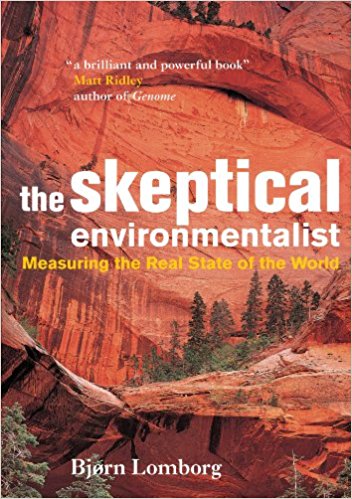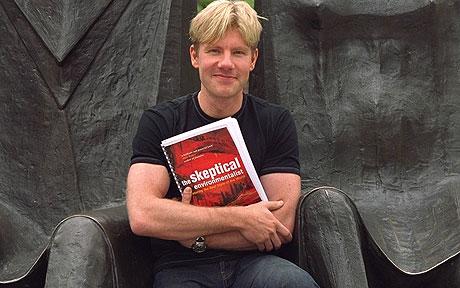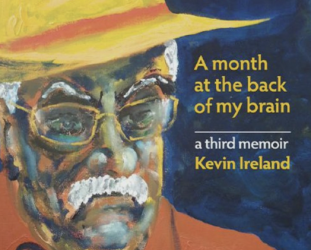Graham Reid | | 9 min read

Good news arrives in small paragraphs. Take, for example, remarks from John Caldwell, a professor at the Australian National University in Canberra, at a United Nations conference on demography.
If his report was published at all, it
was buried behind the stories of tanks rolling into Palestinian camps
and the usual warnings about the decline of civilisation through
pollution, poor spelling and video games.
But Caldwell spoke of a
large ray of light. It appears fertility is dropping to lower than
expected levels and the trend means that over-population, long the
bogeyman to frighten an already nervous planet, might not
happen.
Caldwell even said the world's population - once expected
to exceed 10 billion, up from the present 6.1 billion - might pass
itself on the way down again.
This is a rare piece of good news -
but would have come as no surprise to Dr Bjorn Lomborg, once an
inconspicuous statistician and associate professor of political
science at the University of Aarhus in Denmark, who is now a
household name and bete noire in the homes of insecure
environmentalists everywhere.
Lomborg, a 36-year-old Dane with the
boyish good looks of a Eurovision song contest competitor, announced
last year that things were not as bad as we had been led to believe,
and were actually considerably better.
A former member of
Greenpeace, Lomborg is a different kind of Euro-sceptic, and a highly
unpopular one with the many scientists and eco-activists who recoiled
from his projections of a moderately bright future on uncrowded,
increasingly clean and fossil fuel-dependent Planet Earth.
 Lomborg's
controversial book, The Skeptical Environmentalist, published by
Cambridge University Press last year, made some radical and
unfashionable claims which grabbed headlines and column centimetres.
The Herald's lengthy article last June was one of hundreds that
appeared in the international press and which tossed this researcher
into a lions' den of claim and counter-claim.
Lomborg's
controversial book, The Skeptical Environmentalist, published by
Cambridge University Press last year, made some radical and
unfashionable claims which grabbed headlines and column centimetres.
The Herald's lengthy article last June was one of hundreds that
appeared in the international press and which tossed this researcher
into a lions' den of claim and counter-claim.
According to
Lomborg's findings, while the threat of biodiversity loss is real, it
is exaggerated. His statistical studies also showed our air and water
is becoming less polluted, that the population explosion predicted by
Dr Paul Ehrlich's 1968 book, The Population Bomb, which asserted
hundreds of millions starving to death in the 1970s, simply didn't
happen, that natural resources are not running out, and it is far too
expensive to do anything about global warming.
His book, 350 pages
of jargon-free language and with a whopping 2930 footnotes, tackled
doomsayers such as Isaac Asimov and Frederick Pohl, who wrote in 1991
that it was already too late to save the planet and all we could do
was decide just how bad we were willing to let things get.
"Mankind's
lot has actually improved in terms of practically every measurable
indicator," wrote Lomborg. But he cautioned that while things
have improved, that doesn't mean it's good enough.
Even so,
Lomborg was giving a big thumbs-up and his book, which effectively
skewered the environmental-protection industries for their alarmist
scenarios, came trailing favourable reviews from The Economist, the
New York Times, the Wall Street Journal and even Rolling Stone.
Because of its populist style it was one of the few science books
reviewed in the popular press.
Matt Ridley, author of Genome (an
analysis of the 23 human chromosomes), considered it something which
"should be read by every environmentalist so that the appalling
errors of fact the environmental movement has made in the past are
not repeated".
Needless to say, the environmental lobby and
many scientists saw it somewhat differently and the author has since
been at the centre of a firefight.
Lomborg, with appropriately
lefty interests such as the use of surveys in public administration,
was accused of misinterpreting or being selective with his data. He
was pilloried for not being an environmental scientist (his degree is
in political science), nailed as an anti-environmentalist who gave
comfort to the machinery of rapacious capitalism, and much
more.
Websites crackled with angry accusations, and the considered
response of fellow-author Mark Lynas, who is working on a book about
the effects of climate change, was to shove a pie in Lomborg's face
at a book-signing in London.
"I don't see why the environment
should suffer every time some bored, obscure academic fancies an ego
trip. This book is full of dangerous nonsense," he said after
delivering Lomborg what media reports waggishly called "his just
desserts".
The debate has been heated, but scientific
journals full of technical talk and graphs don't have the
headline-grabbing glamour of a good stoush. And for laypeople, the
science-speak which refutes Lomborg is too dense to be
comprehensible.
Among the other charges, many scientists say
Lomborg has exaggerated for effect (a device he criticises others for
doing) and that he used discontinued data. There were also
suggestions of an evil conspiracy.
Richard Bell, of the Worldwatch
Institute, noted that the Washington Post reviewer was Dennis Dutton,
identified as "a professor of philosophy who lectures on the
dangers of pseudoscience at the science faculties of the University
of Canterbury in New Zealand". Dutton - who hailed the book as
"the most significant work on the environment since the
appearance of its polar opposite, Rachel Carson's Silent Spring, in
1962" - is also the editor of the website Arts and Letters
Daily.
Bell said darkly, "The Post did not tell its readers
that Dutton's website features links to the Global Climate Coalition,
an anti-Kyoto consortium of oil and coal businesses".
To be
fair, the Post also didn't tell you Dutton's website has links to
ifeminist, the religious studies journal Killing the Buddha, Village
Voice and about 100 other magazines, journals and newspapers. It also
has "Lomborg pro and con" pages.
High-profile Canadian
environmentalist David Suzuki, who visited New Zealand this month,
was sceptical, not to say downright cynical, about why The Skeptical
Environmentalist had received such wide coverage.
It was not only
a good news story - rare in the media - but on his website he
suggested "the reason the book received so much publicity is
because of the deep pockets and influence of some big businesses that
have vested interests in maintaining the status quo".
He too
cited Lomborg's take on the state of the planet as similar to the
positions of some large industry-financed institutes and groups, such
as the Global Climate Coalition.
"These groups wage
big-budget campaigns to confuse the public about issues like air
pollution and global warming."
And yet, says Suzuki,
Lomborg's views went largely unchallenged in the media, although his
beliefs ran contrary to most scientific opinion and, even before his
book was published in North America, his views had already been
widely discredited by many of his colleagues at Aarhus
University.
Other Lomborg critics said that by coming under the
imprint of Cambridge University Press, one of the most hallowed of
names in scientific publishing, his book was afforded immediate
cachet and credibility by book review editors, and it was often
reviewed by those without the time and resources to analyse that
litany of footnotes. Who checks footnotes anyway?
Well, some
scientists did - and found Lomborg's research and interpretations
wanting. In January Scientific American ran an 11-page attack on
Lomborg which contained articles by four well-known environmental
specialists: Stephen Schneider of Stanford University; environmental
scientist and energy expert John P. Holdren of Harvard; John
Bongaarts, a vice president at the Population Council in New York
City, and Thomas Lovejoy, chief biodiversity adviser to the World
Bank.
They battered Lomborg for "egregious distortions"
(Schneider), for "elementary blunders of quantitative
manipulation and presentation that no self-respecting statistician
ought to commit" (Holdren), and for sections "poorly
researched and presented ... shallow ... rife with careless mistakes"
(Lovejoy).
The real concern is that while Lomborg grabbed the
headlines and book reviews, those who are challenging his contentions
are not getting equal time. The Union of Concerned Scientists'
webpage opened with the quote by Sir Winston Churchill: "A lie
gets halfway round the world before the truth has a chance to get its
pants on."
In fact some scientists looked at Lomborg's book early on, but simply dismissed it as foolishness. It was only after articles started appearing which said Lomborg had exposed environmentalists as wrong about just about everything that the scientific community realised it had a fight on its hands.
And it still rages.
One simple
question comes up frequently: Why has Lomborg had no support from any
major environmental organisation anywhere in the world for his
assertions?
The answer is perhaps obvious: it is hardly in any
such agencies' interests (especially if it is seeking government
funding or public donations) to lie down with those who might say
things are hunky-dory.
"I thought initially we would have a
couple of weeks of debate and that would be it and we'd all move on,"
said Lomborg recently. "But it just kept on and on and
on."
That's because saving the planet is a big business full
of professional lobbyists and fundraisers, market share jargon and ad
agencies. And for business to be good it must expand.
Patrick
Moore, one of the co-founders of Greenpeace who fell out with the
organisation over its radical tactics, has long asserted that, having
been successful in its early battles, the environmental lobbies had
to invent new concerns.
Despite the international outcry, the
Danish Government announced it was appointing Lomborg to head a new,
small environmental monitoring agency, the Institute for
Environmental Evaluation. Its mission will be to decide the best ways
to spend taxpayer dollars on environmental remediation.
Many
environmentalists are mad as hell.
However, Lomborg has sent a
blast through the environmental lobbies, found sympathy within some
for the need to be objective rather than emotive, and produced some
curiously telling responses.
Tom Burke, a member of the Executive
Committee of Green Alliance, an environmental adviser to BP and as
green as it gets, wrote a lengthy plain-English rebuttal of Lomborg's
contentions which was apposite, tart and convincing, but also of
great interest to those who shove dollars in a Greenpeace envelope
and feel good when they walk to work rather than taking the
gas-guzzler out of the driveway.
 Burke says no environmental
organisation or leading environmentalist asserts we are having an
energy crisis (it was in the 1970s when many did, apparently), that
environmentalists do not believe natural resources are running out
(that dates from the Club of Rome in 72), and "that some
environmentalists exploit, sometimes aggressively, the gap between
perceptions and reality, playing on people's fears to generate
headlines and revenues". These are revealing admissions from a
greenie on the inside.
Burke says no environmental
organisation or leading environmentalist asserts we are having an
energy crisis (it was in the 1970s when many did, apparently), that
environmentalists do not believe natural resources are running out
(that dates from the Club of Rome in 72), and "that some
environmentalists exploit, sometimes aggressively, the gap between
perceptions and reality, playing on people's fears to generate
headlines and revenues". These are revealing admissions from a
greenie on the inside.
And Suzuki's latest book, co-written with
Holly Dressel, is Good News for a Change, which counters the
criticism that environmentalists are all a bunch of doomsayers.
"We've got to give people a sense of hope ... thousands of
things [are] going in the right direction".
But that doesn't
change his overall message about the seriousness of our global
problems.
So maybe we're not going to eco-Hell. Or maybe it will
be worse than we've been warned. Or maybe we simply don't know. But
we do need to question closely the banner-wavers of all
persuasions.
On the Scientific American website author Michael
Shermer, the founding publisher of Skeptic magazine, has a column
headed "Baloney Detection" in which he makes a valuable
point. After challenging common beliefs held by many of his students,
he is often asked by them why they should believe him.
"My answer: You shouldn't."





post a comment